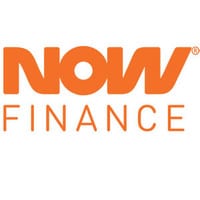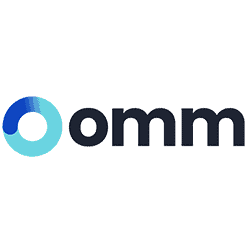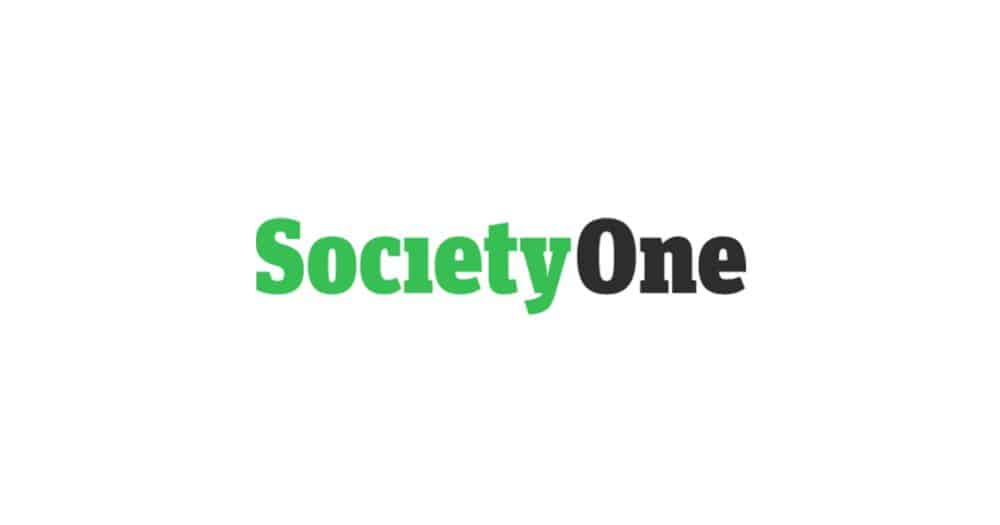Find and compare personal loans from banks and lenders across Australia. Whether you're searching for fixed, variable, secured, or unsecured, compare interest rates, fees, features and more to find the personal loan for your needs. There is no single best personal loan as everyone’s needs are different. Use filters to improve your results.
The lowest personal loan rate of 4.15% p.a (comparison rate5.09% p.a) can be found with Australian Military Bank’s Green Loan personal loan.
| Image | Product | ReaL time Rating | Go to site |
|---|---|---|---|
Highlighted  | Personal Loan- Excellent Credit ZERO Upfront Fee until 30 June 2021. Ends in about 1 month
An unsecured personal loan with a competitive interest rate and no ongoing or extra repayments fees, giving you the flexibility to pay it off faster. | 10 | Go to site |
Excellent  | Plenti Personal Loan For a limited time only, we've dropped our lowest rates for customers with excellent credit. Offer ends 30 June 2021. T&Cs apply. Ends in about 1 month
Enjoy lower rates and no early repayment fees with an unsecured loan. | 10 | Go to site |
Special  | Unsecured Personal Loan As an exclusive limited time deal, Wisr are offering a $0 establishment fee (a saving of $595!) on all new Wisr personal loans*$0 establishment fee offer applies to customers referred through RateCity and applies to all applications submitted before 28th May 2021. Credit eligibility criteria, terms & conditions apply.
Tech-savvy borrowers can join this digital lender, without needing to put down security. | 9.5 | Go to site |
Special  | No Fee Personal Loan Pay ZERO fees on loans up to $50,000 with NOW Finance. With no establishment fee, ongoing fees or early payout fee that’s a saving of $1,275.00^^Amount based on fees previously applicable to an unsecured 5-year loan of $30,000.
Make the most of this unsecured personal loan's competitive interest rate with no fees for extra repayments. | 9.5 | Go to site |
Special  | Low Rate Personal Loan Unsecured A discount rate of 5.40% p.a. (CR 6.36% p.a.) for the first 12 months will apply for all eligible applicants.Introductory rate of 5.40% p.a. applies for the first 12-months of the loan term only. After 12-months your fixed interest rate will then revert to a rate starting from 6.29% p.a. for the remainder of the loan term and will be subject to your unique credit circumstances.
Winner of Excellent Credit Personal Loans, RateCity Gold Awards 2021 | 9.5 | Go to site |
Excellent Credit  | Unsecured Loan
| 9.5 | Go to site |
Excellent Credit  | Low Rate Personal Loan
| 9.5 | Go to site |
Excellent Credit  | Personal Loan - Excellent Credit
| 7.7 | Go to site |
What Is a Personal Loan?
A personal loan is a single payment of amounts between $2000 and $100,000 or a credit facility that gives you access to a similar amount. There is no limit to what you can use your personal loan for, but a lot of people prefer to take out a loan for expensive purchases such as doing home renovations, weddings, or even paying for a car. Personal loans can also come in handy when you would like to consolidate the various debts you might have into a single payment, which can lead to lower fees and reductions in the interest rates you pay.
Personal loans, much like most other types of loans, have an interest rate attached to them. This is a set percentage of the borrowed amount (the principal) that you need to pay back alongside the loan. The bank or the lender sets the interest rate depending on a few factors such as type of loan, prevailing market rates, amount of debt you have, and other factors.
There are two main types of interest rates; the standard/advertised rate and the comparison rate.
Personal Loans: How Do They Work?
Since there are several steps in the process, you can skip to the section you are interested in below.
How To Find The Right Personal Loan
While it might be obvious to a lot of people, you need to ensure that the loan you get is the right one, it suits your specific situation and that you will be able to pay it back. Doing this will help you avoid borrowing more than you need or wrecking your credit score if you are unable to repay the loan on time and schedule. To help you figure it out, we will look at how personal loans work so it gets easier to choose one.
Personal Loans Frequently Asked Questions
All lenders have different timetables on when they send out the cash once a personal loan is approved. Many banks will offer same-day money transfers, with some payday lenders sending you the money an hour or two after your approval. If you are in a cash crunch and need the money quickly, it is always a good idea to check how long particular lenders take to send you the cash before you start the application process.
The interest rate you get can vary wildly between lenders. However, the average interest rate for unsecured loans is usually 12-14% annually. For secured personal loans, you can expect an interest rate of about 8-12 per cent annually. If you do not get approved for a loan by traditional lenders, you can go with risk-based and peer-to-peer lenders who offer interest rates depending on how risky of a borrower you are. Note that these lenders will usually offer higher interest rates than you would get with traditional lenders.
Before you ask for the insurance quote, ensure that the lender will do a credit check without affecting your actual credit score. Most lenders will offer a “Rate Quote” or “Rate Estimate”, both of which refer to the interest rate, without affecting your credit score.
When you apply for a secured loan, you offer some type of security against the loan. If you fail to repay your loan, a lender will get in touch to know what is going on. If you are completely unable to repay the loan, they will repossess the asset you put up as security and sell it to recoup their money.
If you have any trouble keeping up with your repayments, the best thing to do is to get in touch with the lender. You can get into an agreement where they set up a payment plan or give you alternatives to help you keep up with your repayments. You always have the option of contacting a financial counsellor to help you out.
That depends on the type of loan you are applying for. For car loans, you are obligated to avail all information about the car, its registration, and all finance agreements before the money is dispatched. For unsecured loans, most lenders are comfortable with vague details about the money’s use. Debt consolidation loans require that you inform the bank about all the debts you need to settle, including creditor and other debts.
You may be approved for a home loan that is lower than the valuation of a home you would like to purchase. In these cases, you have the option of taking a personal loan to cover the difference or LMI. However, you need to think about whether lenders will approve you for a personal loan seeing that you are already approved for a home loan. Additionally, consider whether you can handle repayments on the two loans if the personal loan gets approved.
Since most credit unions operate not-for-profit models, their loans are often cheaper in terms of the fees and charges that come with their loans. This model also means that interest rates on their loans are quite low and affordable. Do note that credit unions are regulated the same way banks are, so it is completely safe to apply for credit union loans.
Changes in interest rates are common with variable rate personal loans. The interest rate on these types of loans depends on the rate set by the Reserve Bank of Australia. When interest rates go up on a personal loan, an alternative that could help keep them low is refinancing the loan.
If your credit score is low, and you are unsure whether banks or lenders will approve your loan, you may start thinking about applying for a personal loan through Gumtree. It is always best to research any lender before taking a loan with them as part of your due diligence. Also, check that any lenders you are interested in have an Australian Credit license.
By their definition, short-term loans, which are also called payday loans, are personal loans. However, there is a difference between payday and personal loans that make them very different. For example, the term for personal loans is usually 1-7 years while payday loan lenders can offer terms between 16 days and a year. Payday loans lenders also approve smaller amounts, usually lower than $5000 and make their loans available to those with bad credit.
This question is quite complex as the answer depends on the lender as well as what you would like to use the money for. Personal loan lenders and banks will usually offer amounts from $1000 to $80,000 and beyond. Amounts of between $20,000 and $30,000 are considered mid-sized loan amounts while amounts between $10,000 and $20,000 are considered small loans. Using this classification, you should be able to find the right lender.
It is becoming increasingly common for lenders to offer loan protection insurance. This insurance is used to keep your repayments going should you lose your job or are unable to work for any reason, such as injury or illness. Lenders usually let you apply for the insurance when you get the loan approved, but some of them also let you get the insurance down the line.
If your loan application is successful, you will receive the funds in an account you specified when applying for the loan. Once this happens, you should ensure that you make your repayments in time. Those who take a loan through a bank that they hold an account with can set up a direct debit facility. If you took a loan through another bank or lender, it is always good to have an automatic transfer set up. Automatic transfers should be set to make the repayments a few days before they are due.
Even when you have these systems in place, it is always a good idea to check your loan status regularly to ensure all payment and repayment details are in order. Those who would like to make additional repayments can do this through BPAY, internet transfers and over the counter if their lender has branches and allows it. For missed payments due to insufficient funds, call the bank as soon as you are alerted of the issues to sort things out.
If the lender or bank asks for an application fee during the loan application process, it is understandable to worry about your application fee in case the loan is not approved. In most cases, the application fee is only charged when your loan gets approved and is deducted from the loan amount or loan account. To be sure about what happens, always check the terms set out in the product disclosure statement that comes with the loan.
As long as the loan is not a car or debt consolidation loan, you can use it to finance different business needs. These include equipment, trucks, payroll, or other business needs. This also applies to those who have bad credit. Business trucks, cars and vans can all be purchased using your personal loan. Equipment that needs to be leased such as earth moving equipment, forklifts, office equipment and workshop machinery can also be paid for using funds from your personal loans. This way you do not have to meddle with your business’ finances to purchase or lease the essential equipment it needs.
